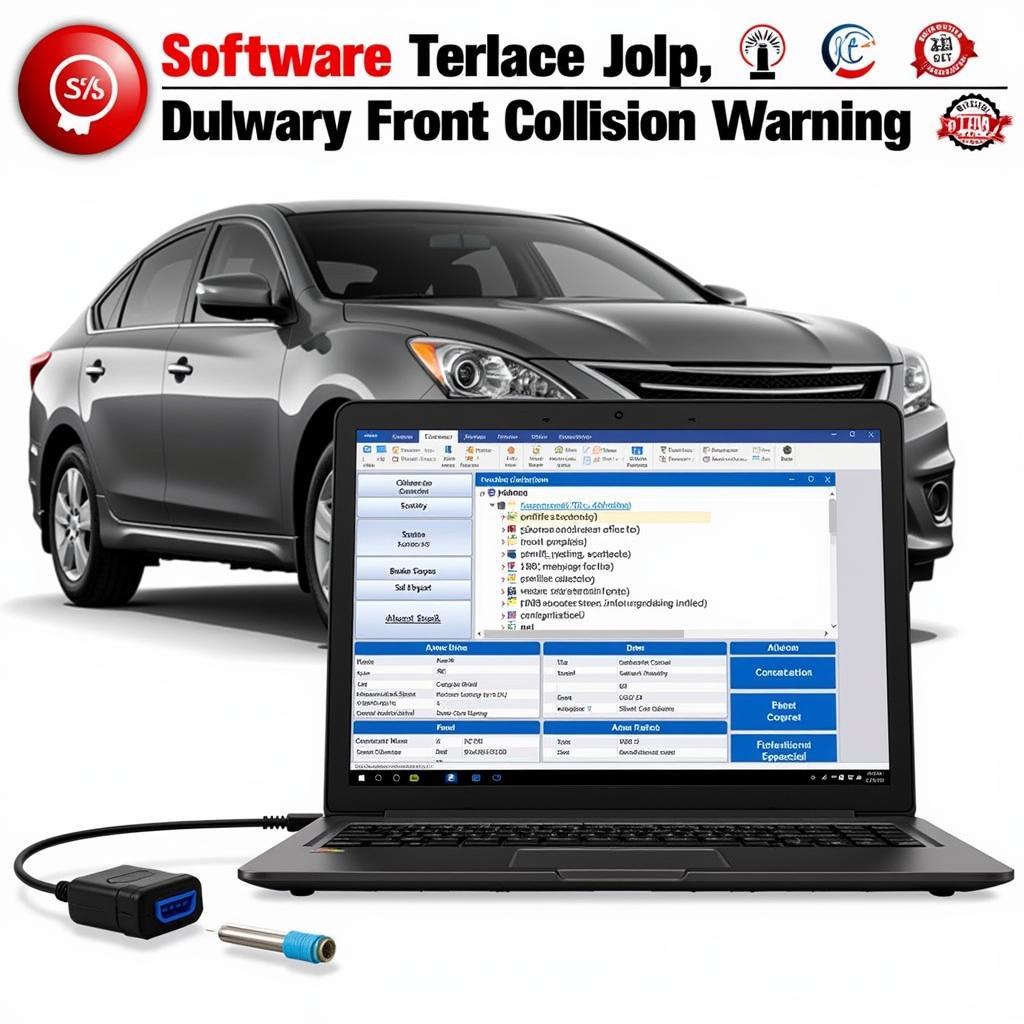A flashing or illuminated ABS/ESP warning light on your Volkswagen can be a worrying sight, but it’s not always a cause for panic. These systems are designed to enhance your safety, and the warning light is simply alerting you to a potential issue that needs attention. This guide will help you understand the common reasons behind this warning light, how to diagnose the problem, and what solutions are available.
Common Causes of VW ABS/ESP Warning Lights
The ABS (Anti-lock Braking System) and ESP (Electronic Stability Program) work together to provide you with optimal braking and vehicle stability. When the warning light appears, it could be due to a variety of factors. Here are some of the most common causes:
- Faulty Wheel Speed Sensor: These sensors monitor the speed of each wheel and are crucial for the ABS and ESP systems to function correctly. A damaged or malfunctioning sensor can trigger the warning light.
- Low Brake Fluid: Insufficient brake fluid can affect the hydraulic pressure needed for ABS and ESP operation, leading to the warning light.
- Electrical Issues: A problem with the wiring or electrical connections to the ABS/ESP system, such as a short circuit or loose connector, can also cause the warning light to illuminate.
- Faulty ABS Control Module: This module controls the ABS and ESP functions, and a malfunctioning module can trigger the warning light.
- Defective Brake Components: Issues with the brake calipers, brake pads, or brake rotors can impact the ABS and ESP systems, potentially causing the warning light.
- Steering Angle Sensor Malfunction: This sensor monitors the steering wheel angle, which is crucial for the ESP system’s stability control. A malfunctioning steering angle sensor can cause the ESP warning light to activate.
- Tire Pressure Issues: Significant differences in tire pressure can confuse the ABS and ESP systems and trigger the warning light.
Diagnosing the Problem
When the ABS/ESP warning light comes on, it’s best to have your vehicle inspected by a qualified technician. However, you can perform some initial checks to narrow down the potential problem:
1. Check the Brake Fluid:
- Open the hood and locate the brake fluid reservoir. The reservoir will typically be labeled with a brake icon or the word “Brake.”
- Check the brake fluid level. If the level is low, it may indicate a leak or a need for brake fluid replacement.
- Top off the fluid if needed. Use the correct type of brake fluid recommended for your VW model.
2. Inspect the Wheels and Tires:
- Check for any visible damage to the wheels, brake calipers, or brake rotors.
- Look for signs of worn or uneven brake pads.
- Verify the tire pressure. Ensure all tires are inflated to the correct pressure level listed in your vehicle’s owner’s manual.
Solutions for VW ABS/ESP Warning Light
The solution to a VW ABS/ESP warning light depends on the underlying cause. Here’s a general breakdown of possible solutions:
- Replace a faulty wheel speed sensor: A technician will need to replace the malfunctioning sensor.
- Top off or replace brake fluid: If the fluid level is low, it may need to be topped off or completely replaced.
- Repair electrical issues: A mechanic will need to identify and repair any short circuits or loose connections in the ABS/ESP system.
- Replace the ABS control module: If the module is faulty, it will need to be replaced by a certified technician.
- Repair or replace brake components: Damaged brake calipers, brake pads, or brake rotors will need to be repaired or replaced as needed.
- Replace the steering angle sensor: A malfunctioning sensor will need to be replaced by a qualified mechanic.
- Adjust tire pressure: If the tire pressure is uneven, inflate or deflate the tires to match the recommended pressure.
Seeking Professional Assistance
It’s important to note that these are just general guidelines, and the specific cause and solution for your VW ABS/ESP warning light may vary. It’s highly recommended to have your vehicle inspected by a certified mechanic who specializes in Volkswagen vehicles to diagnose the problem accurately and implement the appropriate solution.
“Remember, when it comes to your car’s safety systems, it’s always better to be safe than sorry,” advises John Smith, a veteran Volkswagen mechanic with over 20 years of experience. “Ignoring a warning light could lead to serious consequences, so it’s important to have the issue addressed promptly.”
FAQ:
Q: Can I drive my VW with the ABS/ESP warning light on?
A: While it’s possible to drive with the warning light on, it’s not recommended. These systems play a vital role in your car’s safety, and driving without them functioning correctly could increase the risk of an accident.
Q: How much does it typically cost to repair an ABS/ESP warning light?
A: The cost of repair can vary significantly depending on the cause. Minor issues, such as low brake fluid or a loose connection, may be inexpensive to fix. More complex problems, like a faulty control module or brake component, could require more extensive and costly repairs.
Q: What if I can’t afford the repair?
A: If you’re facing a significant repair cost, talk to your mechanic about alternative solutions, such as prioritizing repairs based on urgency or exploring financing options.
Q: Can I reset the ABS/ESP warning light myself?
A: It’s generally not recommended to reset the warning light yourself. This could mask a serious issue and prevent you from addressing the underlying problem. It’s best to have a mechanic diagnose and address the issue before resetting the light.
Q: How can I prevent ABS/ESP warning lights in the future?
A: Regular maintenance is crucial for preventing warning lights. Follow your vehicle’s maintenance schedule, including regular brake fluid checks, tire rotations, and inspections.
By understanding the common causes, diagnosing the problem correctly, and seeking professional assistance when needed, you can ensure your VW’s ABS/ESP systems remain operational and contribute to your safety on the road.

